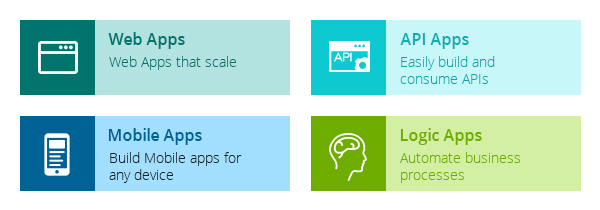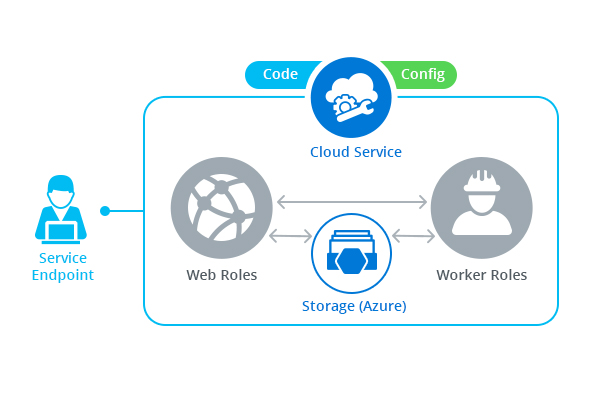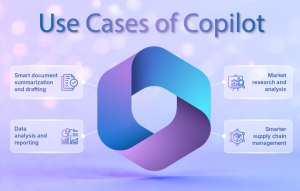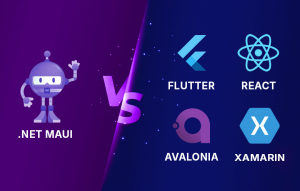The cloud has existed for a long time. The term was first coined almost 20 years ago, though it has only gained popularity in the past decade notably due to big companies offering cloud computing services.
What was not feasible a few years ago is an actual reality now. The service model of cloud computing started when Amazon realized the potential of its data centers across the world. By renting virtual space, they were able to offer data storage to people and companies which could not afford their own servers. The subscription based service has multiple tiers depending on the requirements.
Zipping to today, the cloud is much more than just a means to store data as it enables robust computations at the server level which do not concern the end-users. It simplifies processes and presents relevant information independent of the user’s location. With user authentication, security is also taken care of by enabling the right information to the designated user, a sort of for-your-eyes-only feature.

Cloud strategy and assessment workshop
The adoption of cloud-based infrastructure by enterprises is increasing greatly. However, a lot of enterprises are still reluctant to adopt a cloud strategy due to lack of skills or knowledge.
Microsoft Azure
Since 2010, Microsoft Azure has been providing cloud computing services to numerous businesses through a global network of datacenters managed by Microsoft or its partners. The biggest advantage of Azure is that it is a part of the boisterous Microsoft family of products and services. Azure can handle all Windows based apps along with Office 365 and SharePoint. This integrated approach immensely helps in devising a strategy to move to the Azure cloud and eventually managing the entire setup. In addition, Microsoft has opened its doors to the ever expansive world of open source technologies by providing SDKs for Python, Java, Node.js and .NET.
With IaaS, PaaS, and SaaS services, Microsoft Azure is created to fit in any business in any industry. It provides multiple environments and scenarios depending on the requirement. The software as a service model works for companies that do not have an in-house IT support team.
This post focuses more on the PaaS and SaaS models due to the benefits they offer to small and medium sized enterprises. Not all businesses have, or even need, an in-house IT support staff, along with hardware installations and maintenance. That is an ongoing expense that most small companies would like to avoid. This is where a turnkey Intranet portal solution best fits the requirement. To have someone manage the infrastructure of your applications is more than just a monetary benefit as it lets you allocate the right resources to the job and concentrate on your core business offerings. Also, with Microsoft Azure’s scalability, you only pay for the storage and computing used.
Top features of Azure Cloud Services
1. Azure App Service

Enables the creation of powerful websites as well as web and mobile apps for employees and customers, which can be quickly deployed and scaled according to business requirements.
2. Virtual Machines
Single click deployment of computing solutions that lets you deploy very quickly. Secure VM connection in Azure can be achieved by VPN over the Internet or by establishing direct connections via Microsoft partners.
3. Cloud Services

Cloud services operate in the PaaS bracket. They work as a combination of Web and Worker Roles and offer more control over the VMs. All the VMs within a single application are executed in the same cloud service and users access the application through a single public IP address. The platform scales and deploys the VMs in such a way which eliminates a single point of hardware failure.
4. Data Management
Azure provides the below mentioned four types of data management services:
SQL Database is a managed service from Microsoft Azure for relational data. Being a PaaS, Microsoft takes care of the mechanics which means you do not need to manage the database software nor the hardware it runs on.
SQL Server running in a VM which is itself created using Windows Azure Virtual Machines. This approach lets you use all of SQL Server as Azure extends features that aren’t provided by SQL Database. The downside here is that it also requires you to do more of the management work for the server and the VM.
Blob storage from Microsoft Azure enables storage of large chunks of unstructured data such as text and binary data, and can also be used to store videos and other smaller data, which can be accessed from anywhere over the Internet over secured connections. Data can be made public or private.
Table Storage, providing a NoSQL key/value store. Tables provide fast, simple access to large amounts of loosely structured data. Don’t be confused, however: Despite its name, Table Storage doesn’t offer relational tables.
The Azure Table storage service lets you store large amounts of structured data. It provides a NoSQL data store with the ability to store structured, non-relational data, and these tables can be scaled as per the demand.
5. Business Analytics
Azure can record all sorts of data which is then presented for analysis. Reporting processes can be created within the application itself making them easy to understand for the management. Azure allows the generation of data reports in numerous ways that include charts, graphs, HTML, XML, PDF, Excel as well as maps and tables for analysis via intelligence tools. In case of massive amounts of data, HDInsight, Windows Azure’s Apace Hadoop-based service, offers big data management.
6. Identity Management
A comprehensive identity and access management cloud solution with single sign-on capabilities, Azure Active Directory allows secure access to any applications whether on premises or in the cloud. Gain access to all Microsoft services like Office 365 and other SaaS based applications.
7. Media Services
Azure Media Services provides enterprise-grade streaming solutions by combining highly scalable, encoded encryption and streaming. Media Indexing enhances discoverability while cross-platform players simplify distribution. In addition, Cloud DVR capabilities enable the transfer of live content.
Enterprises today need to be on their toes to be able to keep up with the competition. By automating business processes and moving them to the cloud, you have the opportunity to increase collaboration and deliver quality results. Consult with us, and realize the awesome power of Microsoft Azure Cloud Services for all your collaborative needs.









